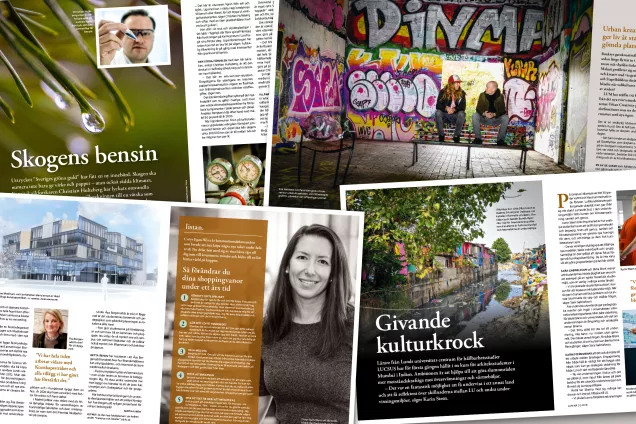“People are allowed to be ill, those who are ill should feel that they can be so in peace and quiet. And there has never been a backlash.”
Gunnel Holm’s approach may have something to do with the fact that, as a new manager, she was quickly overloaded with work and became ill from the stress.
“It is hard to say how that has affected me as a manager, but I took away from it the insight that complete recovery from burn-out takes a long time.”
She talks openly about her sick leave, which sets the tone. It probably means that more people dare to drop the mask and talk about how they really feel. Gunnel Holm thinks that the atmosphere at work is important in rehabilitation, regardless of whether one is returning after a psychosomatic illness or some other form of serious ill health. There is a high level of tolerance at the Humanities and Theology faculty office for the fact that people are different and are in different states of health. To sit quietly at the staffroom table is OK if you feel like it. You don’t always have to be on top form.
“If people are allowed to show themselves exactly as they are as usual, without facing condemnation or taunts, it makes rehabilitation easier as well. Here, a sort of benign indifference prevails. We have, and have had, many employees with distinct personalities; there is an acceptance of differences and that life goes up and down.”
When there is an emergency requiring sick leave, it is important for Gunnel Holm to show that she cares and will step in – whether with practical help or if the employee needs to talk to someone. But during the period of sick leave, she prefers not to impose, signalling instead that there is no pressure from the employer. When the employee is back at work, she tries to follow up on how they are – but not too often.
“One mustn’t dwell on it. I don’t view those who have been ill as being their illness. I see many other things instead.”
When someone is put on sick leave, Gunnel Holm finds that there is loyalty among colleagues. They step up and try to help find practical solutions to take care of the work duties which still must be done. The person who is ill should be able to let go of thoughts about work.
“Their colleagues often think creatively and take responsibility for covering for the person on sick leave. In addition, their contact network is extensive if we need to recruit a substitute. In the end, as the manager, I am the one to approve the solution, but I get valid assistance from competent staff.”
Jenny Loftrup



